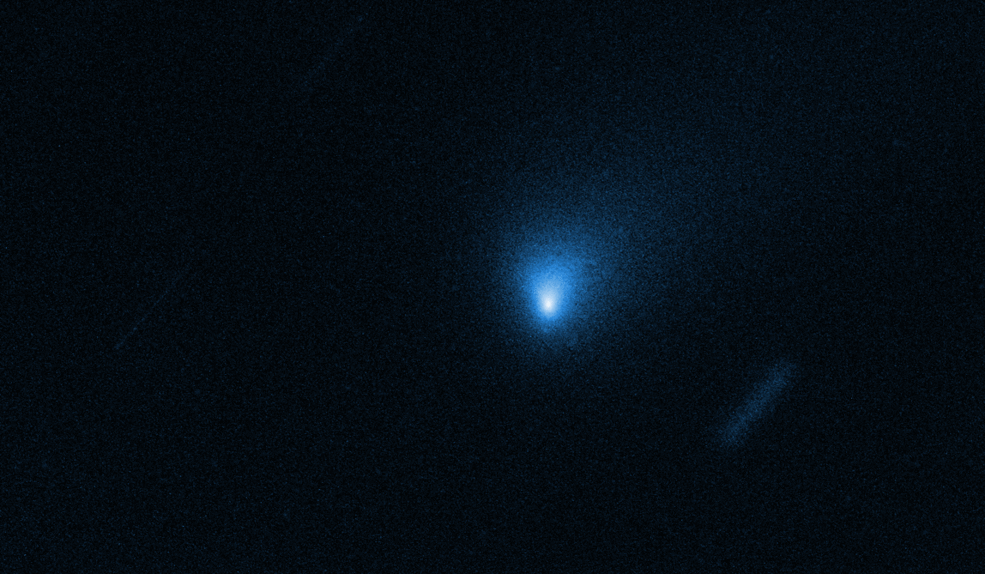It’s now been over a month since an amateur astronomer spotted what is now believed to be the second interstellar object ever observed by mankind. The gassy chunk of space debris is thought to be a comet, and it’s been named 2I/Borisov in honor of its discoverer, Gennady Borisov.
Now, with the comet getting so much attention in the astronomy world, NASA’s Hubble Space Telescope is finally getting in on the action. On October 12th, Hubble targeted the comet and scientists were able to snap several images of it, providing us with our best look yet.
The object was spotted fairly early in its trip through our solar system, meaning that scientists will have a much larger window to observe it than they had with the first interstellar object, Oumuamua. In the case of 2I/Borisov, it has quickly become clear that the comet is actually, well, shockingly normal.
When astronomers have observed comets from our own solar system they all tend to look similar. An icy nucleus is the heart of the comet, surrounded by a cloud of dust and gas that forms a tail as the comet moves through space.
The fact that 2I/Borisov looks so much like a typical comet from our own system isn’t necessarily surprising, but it is a significant data point in the study of how comets take shape in other areas of the galaxy and universe as a whole.
“New comets are always unpredictable,” Max Mutchler, one of the observing scientists, said in a statement. “They sometimes brighten suddenly or even begin to fragment as they are exposed to the intense heat of the Sun for the first time. Hubble is poised to monitor whatever happens next with its superior sensitivity and resolution.”
The comet will be visible to scientists for roughly the next year, and we expect to hear a lot more about it in the coming months.








